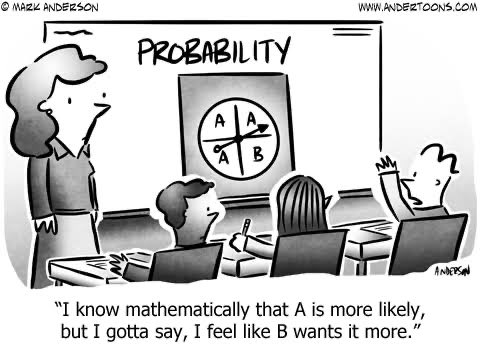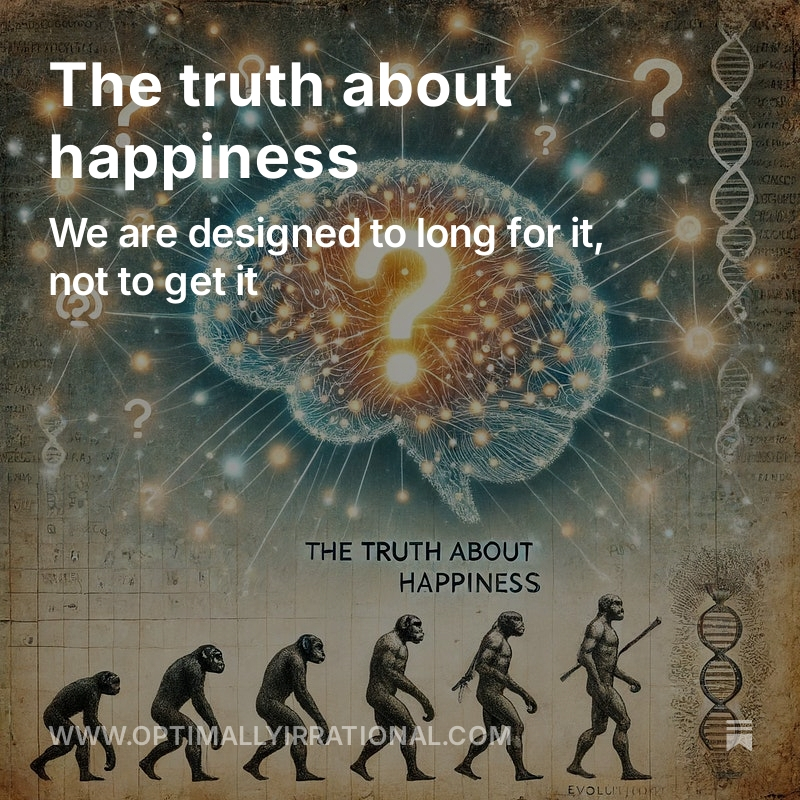The notion of “probability” is both familiar (we use it), and mysterious (we would typically struggle to define it).
Here is a 🧵 to remove the mystery and make the meaning of “probability” more intuitive.
Here is a 🧵 to remove the mystery and make the meaning of “probability” more intuitive.

When probability is taught in school, a random device, e.g. a 🎲, is usually used as an illustration. We are typically told that the probability of an event is the average frequency this event will be observed if we use this device repeatedly. 

So the probability of getting a 6 on a 🎲 is 1/6 because if you throw a die many times, on average you will observe “6” one time out of 6.
It is a “frequentist” definition.
It is a “frequentist” definition.

Because this probability is determined by the geometric properties of the die (its symmetries), it may seem that this probability is “objective”, a property of the die.
Probabilities have been seen by some as objective properties of the events considered. Here is Charles Pierce (1910) describing it as a property of the die. 

But this view makes it hard to talk of the probability of a single event which won’t be repeated. Like:
“What is the probability Biden will win the midterm elections?”
Following that view, von Mises (1928) considered impossible to talk of the probability of a single event.
“What is the probability Biden will win the midterm elections?”
Following that view, von Mises (1928) considered impossible to talk of the probability of a single event.

Another problem is that you can’t talk of events which have already been determined but are not known. This issue was the motivation behind this poll:
https://twitter.com/page_eco/status/1558066441345441793
And if the world is determinist, then all events are already determined and the notion of probability does not make sense. 

One solution is to not think of probability as objective but as subjective: a *measure* of our uncertainty.
I toss a coin: I saw it landed on Heads. I 100% know it is Heads. You did not see it, you think it is 50%.
Same event, different probability, due to different information.
I toss a coin: I saw it landed on Heads. I 100% know it is Heads. You did not see it, you think it is 50%.
Same event, different probability, due to different information.

Measures are things like:
length (measure of distance)
area (measure of surface size),
volume (measure of space size),
weight (measure of heaviness). Probability can be seen as a measure of uncertainty.
length (measure of distance)
area (measure of surface size),
volume (measure of space size),
weight (measure of heaviness). Probability can be seen as a measure of uncertainty.

In what sense is it really a measure like the other ones? Measures can be defined by a set of mathematical properties. For instance the measure of the length of the sum of two separate segments is the sum of their length. 

Kolmogorov (1933) defined such principles for probability to be a measure. For instance the probability of the union of two exclusive events is the sum of the events probability.
(E.g., the probability to get either 5 or 6 on a die is 1/6+1/6=2/6.)
(E.g., the probability to get either 5 or 6 on a die is 1/6+1/6=2/6.)

But you’d be entitled to be sceptic. Length, area, volume, weight are things which can be measured objectively (e.g. using a ruler, a scale). How can we “measure” your uncertainty? 

Well you can! Savage (1954) showed that if you follow a few principles of rationality, you act as if you have beliefs which are a probability measure. So we can “measure” your perceived probability by looking at your choices. 

For instance, consider the bet: You get $100 if “Biden will win the midterm elections” and $0 otherwise.
If you would be willing to pay $20 to play this bet (and no more), then your subjective probability for Biden’s victory is 20%.
(Assuming you are risk neutral for simplicity)
If you would be willing to pay $20 to play this bet (and no more), then your subjective probability for Biden’s victory is 20%.
(Assuming you are risk neutral for simplicity)
So amazingly probabilities can be measured!
If you follow Savage’s principles, that is… In fact most people don’t. Even Savage was found violating them. 😬
If you follow Savage’s principles, that is… In fact most people don’t. Even Savage was found violating them. 😬
Nonetheless, for those following Savage’s principles, probabilities can be measured. For the others, decision theorists have designed alternative methods to retrieve subjective probabilities behind people’s choices. 

Noticeably, if our subjective probabilities respect Kolmogorov’s principles, they also respect Bayes’ rule. Nowadays scientists tend to share a “Bayesian” view on probability as subjective and reflecting the weight of our evidence. 

So to go back to the question in the poll. As a few responses pointed out, both answers are valid depending on one’s perspective. From an objective perspective, the one you would know everything, the coin is either H for sure or T for sure.
But for you, both are 1/2 probability.
But for you, both are 1/2 probability.
Even though we talk of probabilities as if they are the property of outside events, they are really a reflection of what is inside our head.
End/
End/

• • •
Missing some Tweet in this thread? You can try to
force a refresh





















